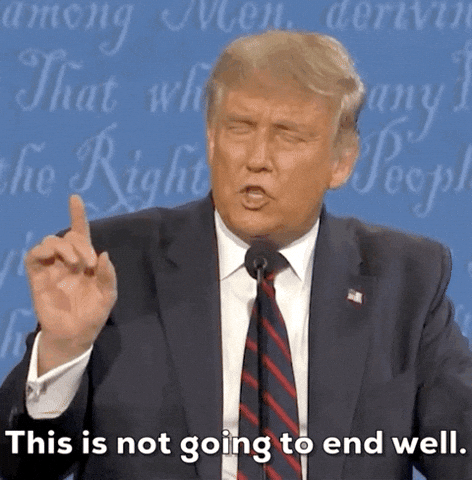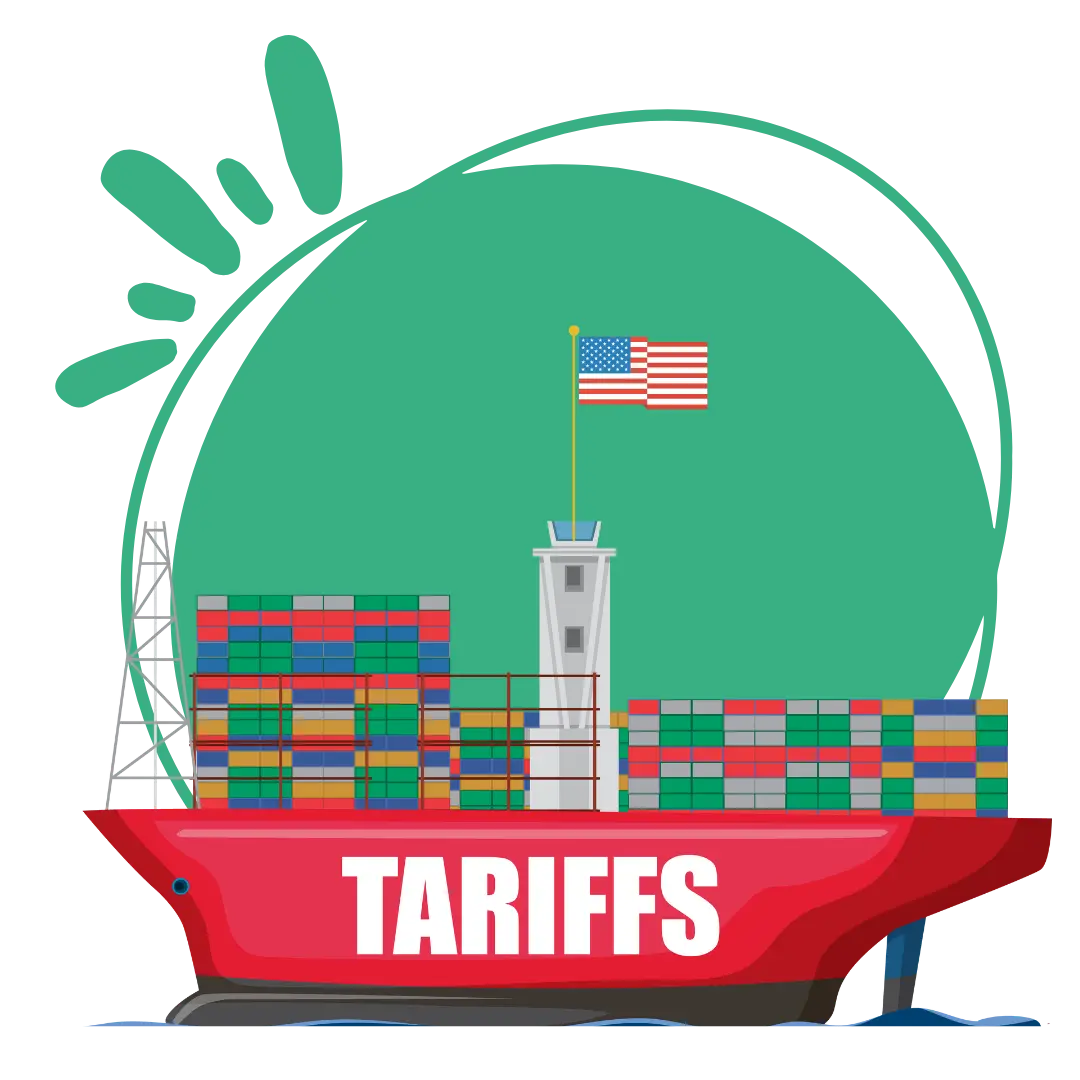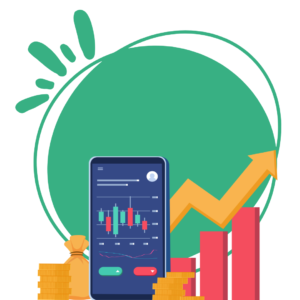When I first started paying attention to tariffs, I’ll admit it was out of necessity, not curiosity. It seemed like one of those topics only economists or politicians needed to understand. But here’s the truth: tariffs are quietly reshaping the global economy — and making it harder for regular people like us to grow wealth.
Right now, tariffs are back in the spotlight. The current US Administration is once again pushing aggressive trade policies — placing new tariffs on Canada, Mexico, the EU, and the world — and the ripple effect is already making its way to your wallet, your career prospects, and your investment portfolio.
If you’re aiming for long-term financial growth, understanding how tariffs work (and how they hit you personally) is no longer optional.
🔍 What are tariffs – and how do they work?
A tariff is essentially a tax on imported goods. When a country slaps a tariff on products coming in from abroad, those goods become more expensive — often by the exact percentage of the tariff.
Let’s say the U.S. puts a 25% tariff on steel from Canada. Suddenly, that imported steel costs 25% more. The idea is to make foreign goods more expensive so local businesses (and consumers) buy domestic products instead.
Sounds simple. But that extra cost? It never gets eaten by the foreign seller. It gets passed on — straight to us, the consumer.
📈 What’s happening now: Trump’s new tariff moves
In early 2025, Trump launched a new wave of tariffs:
- Canada & Mexico: A 25% tariff on most imports, including vehicles, energy products, and electronics.
- European Union: New tariffs on industrial goods, with warnings of more to come.
- China: A 10% increase on selected goods, reigniting the U.S.-China trade war.
The motivation? Trump claims these moves protect American jobs and counter “unfair” trade practices. But the reality on the ground looks quite different.

💸 How do tariffs affect us — the consumers?
You might not be buying raw steel or exporting soybeans, but tariffs are still taking money out of your pocket.
Here’s how:
- Higher prices at checkout: When imported products cost more, that cost trickles down. Everything from groceries to gadgets sees price bumps. For instance, tariffs on Mexican goods could cost the average U.S. household an extra $435/year.
- Reduced purchasing power: Inflation rises as businesses pass on higher import costs. Your salary doesn’t stretch as far, which cuts into your monthly savings or investing budget.
- Job insecurity: Companies facing higher costs may freeze hiring, cancel expansion, or even cut jobs. That promotion you’ve been chasing? It might get delayed if your company’s margins shrink due to trade costs.
🌍 The global impact: slower growth, more uncertainty
Other nations aren’t just sitting quietly. They’re hitting back with retaliatory tariffs:
- Canada is targeting U.S. alcohol, household goods, and construction materials.
- Mexico is imposing duties on food, steel, and clothing.
- The EU delayed initial retaliation but is preparing tariffs on key American exports like whiskey, cars, and tech components.
This tit-for-tat approach shrinks global trade flows — which is bad news for global growth. It’s like everyone agreeing to shoot themselves in the foot to make a point.
Trade wars don’t just affect the countries directly involved. When the world’s largest economies start closing off, everyone feels it.
- Economic slowdown: The OECD downgraded global GDP forecasts to 3.1% for 2025, citing “higher trade barriers” as a key reason.
- Supply chain chaos: Tariffs disrupt industries that rely on international parts — like automotive and electronics. BMW estimates Trump’s tariffs will cost it €1 billion this year alone.
- Investor nerves: Uncertainty causes markets to wobble. When tariffs hit earnings, stock prices drop. Investors pull back. Companies get conservative. That affects pensions, personal portfolios, and company bonuses.
💼 How tariffs complicate long-term wealth building
For someone like us — corporate professionals aiming to grow wealth steadily over time — tariffs make the landscape trickier.
Here’s what I’ve had to adapt:
- Reviewing my portfolio: I’m leaning more into globally diversified funds and companies with flexible supply chains. Geographic balance is key right now.
- Keeping more cash: Tariff-driven inflation has made me cautious. I keep extra liquidity on hand in case prices jump or the market wobbles. We’ve seen a dramatic market fall recently and should inflation rise, the Fed may need to raise the interest rates again, which may lead to further selloffs of equities and stocks.
- Shifting spending: With the cost of essentials rising, I’m reevaluating lifestyle upgrades and focusing more on value-for-money.
- Watching inflation hedges: I’m exploring inflation-protected bonds and assets like commodities — not because I’m panicking, but because I’m planning ahead. We’ve seen a dramatic market fall recently, and should inflation rise, the Fed may need to raise the interest rates again, which may lead to further selloffs of equities and stocks.
💡 What you can do now
You can’t change global trade policy — but you can protect your financial position.
Here’s what I’d do:
✅ Track prices: Stay aware of inflation in the products you regularly buy. If you see costs creeping up, adjust your budget early.
✅ Stay invested: Don’t let headlines scare you out of the market — but do rebalance and make sure you’re not overexposed to affected sectors.
✅ Diversify: Geographically and across sectors. Tech, consumer staples, and healthcare often weather trade storms better.
✅ Upskill continuously: If your industry is vulnerable, make yourself indispensable. Skills are the best inflation-proof asset you can own.
✅ Think long-term: Tariffs come and go. Your wealth plan should be built to outlast political cycles.
Final thoughts
Tariffs might sound like dry trade policy — but they touch every part of your financial life. From what you pay at the shops, to how your investments perform, to whether your employer thrives or tightens its belt.
If you’re serious about building wealth, these are the kinds of trends you need to pay attention to. Not because you can control them — but because you can respond smarter.
Let the politicians argue. You’ve got money to protect — and a future to build.




